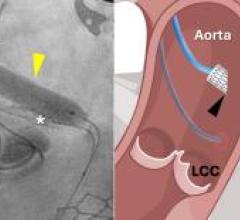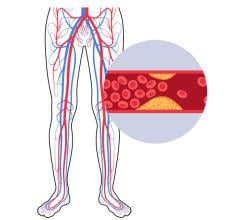March 17, 2010 – New Results from PLATO trial suggest ticagrelor (Brilinta) leads to lower mortality and no increased risk of bleeding when compared to clopidogrel (Plavix) in patients with acute coronary syndrome who undergo coronary artery bypass graft (CABG) surgery.
Patients are less likely to develop fatal outcomes when given ticagrelor instead of clopidogrel as an anti-platelet medication, according to research presented this week at the American College of Cardiology’s 59th annual scientific session. ACC.10 is the premier cardiovascular medical meeting, bringing together cardiologists and cardiovascular specialists to further advances in cardiovascular medicine.
Ticagrelor is pending FDA review and is not yet available in the U.S. market. It is anticipated to be a big competitor to clopidogrel when it is cleared, possibly in the next year. Unlike clopidogrel, the anti-platelet agent’s effects are reversible.
Examining a subpopulation of 1,261 patients in the Platelet Inhibition and Patient Outcomes (PLATO) Trial who underwent CABG, researchers found 10.5 percent of patients given ticagrelor and aspirin within seven days of their procedure had a primary composite endpoint that included cardiovascular death, heart attack, and stroke, compared with 12.6 percent of patients given clopidogrel and aspirin. This reduction was consistent with the overall effect of ticagrelor versus clopidogrel in the main PLATO study.
Patients on ticagrelor had a total mortality rate of 4.6 percent, compared to 9.2 percent for patients on clopidogrel, and the cardiovascular death rates were 4 and 7.5 percent, respectively. When examined individually, there was no statistically significant difference between the two groups for heart attack and stroke, and there was no significant difference in CABG-related major bleedings.
“Ticagrelor seems to be a very promising alternative to clopidogrel for patients with acute coronary syndrome who might be candidates for CABG surgery, because of the significant reduction in mortality and the similar bleeding rate,” said Claes Held, M.D., Ph.D., associate professor of cardiology at the Uppsala Clinical Research Center and Department of Cardiology, and the substudy’s lead researcher. “Because there is such an obvious risk of severe bleeding and fatal complications during surgery, patients with a potential need for CABG comprise an especially important group, for which platelet inhibitors with a better safety-efficacy profile are needed.”
The results of the analysis are in line with data recorded from the overall PLATO trial – a double-blind study which randomized 18,624 patients in 43 countries with acute coronary syndrome to receive treatment with either ticagrelor or clopidogrel. The overall study found an efficacy advantage for ticagrelor compared with clopidogrel and no significant difference in major bleeding. At the time of the original PLATO trial’s publication, ticagrelor was the first antiplatelet agent to demonstrate a reduction in cardiovascular and total deaths in patients with acute coronary syndrome versus clopidogrel.
Both drugs are oral anti-platelet medications and are designed to prevent the formation of blood clots by inhibiting the clumping of platelets, but they belong to two different chemical classes. Clopidogrel is a thienopyridine, which requires metabolic conversion in the body after ingestion, leading to a delayed onset of action. Thienopyridines are also associated with wide inter-individual variability in platelet inhibition (leading to some clopidogrel “nonresponders”) and irreversible binding to P2Y12 receptors, which eliminates the ability to recover platelet function until the body produces new platelets.
By contrast, ticagrelor, which is in a new chemical class called the cyclopentyl-triazolo-pyrimidines, does not require metabolic conversion; binds directly to P2Y12 receptors which leads to more complete platelet inhibition; and binds resversibly, allowing for faster recovery of platelet function.
“With ticagrelor, you get a more efficient and predictable platelet inhibition response but still a more rapid and reversible offset than with clopidogrel,” said Dr. Held.
Although Dr. Held notes that the substudy results are provocative, he adds that caution is warranted in interpreting the findings, especially because of the study’s retrospective, post-randomization comparison between the treatment arms.
The PLATO trial was funded by AstraZeneca, maker of ticagrelor. Clopidogrel is manufactured by Bristol-Myers Squibb and Sanofi-Aventis.
The statistical analyses of this substudy were independently performed by Uppsala Clinical Research Center, Duke Clinical Research Institute, and AstraZeneca.
For more information: www.astrazeneca-us.com.


 February 06, 2026
February 06, 2026 









